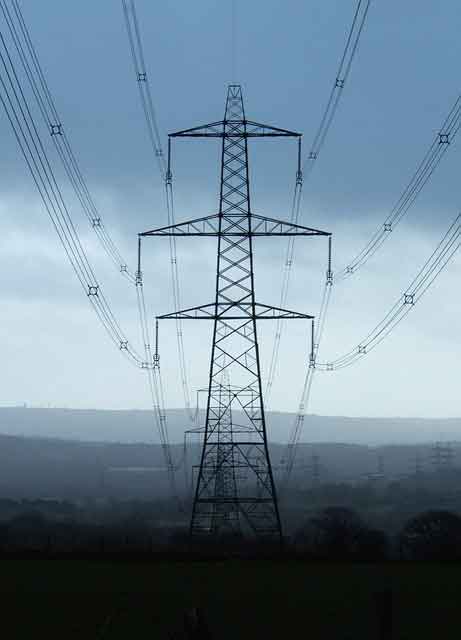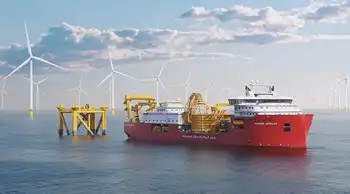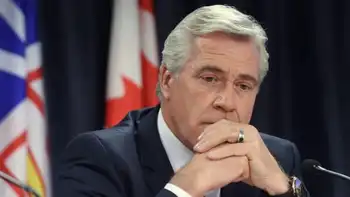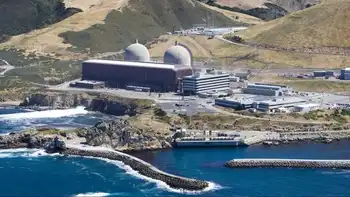CMAJ article blames isotope crisis on supplier
By Toronto Star
Substation Relay Protection Training
Our customized live online or in‑person group training can be delivered to your staff at your location.

- Live Online
- 12 hours Instructor-led
- Group Training Available
The article in the journal says MDS Nordion wouldn't co-operate with Europe's two large-scale isotope suppliers – Nuclear Research and Consultancy Group in the Netherlands, and the Institut National des Radioelements in Belgium.
The European suppliers share concerns about safety and distribution, and co-ordinate production schedules to ensure one reactor is always running. They also communicate with another isotope supplier, Nuclear Technology Products in South Africa.
But they reportedly can't pry information out of Ottawa-based MDS Nordion, which provides about half the world's supply of isotopes, made at Ontario's Chalk River nuclear reactor.
"The one problem we have is that we never get information from the Canadians," Kevin Charlton of the Netherlands' Nuclear Research and Consultancy Group told the CMAJ.
The Chalk River reactor, owned by Atomic Energy of Canada Ltd., was shut down for almost a month in November and December, sparking a critical shortage of medical isotopes used in diagnosing and treating cancer and heart ailments.
The closure followed the Canadian Nuclear Safety Commission's discovery that the reactor had been operating for 17 months without two cooling pumps hooked up to an additional emergency back-up power system capable of withstanding a severe earthquake.
Facing a crisis, Parliament voted to overrule the commission's safety objections and the reactor was restarted Dec. 16 with only one pump connected to the emergency power supply.
AECL announced that it successfully hooked up the second pump and the reactor is now running with all the safety features originally demanded by the safety watchdog as part of the reactor's licence.
Charlton said MDS Nordion is reluctant to share details about its operations with its European counterparts.
"Nordion is represented at our meetings. (But) either AECL doesn't tell Nordion or they don't allow Nordion to tell us."
AECL provides isotopes exclusively to MDS Nordion, which then reprocesses them and sells them to pharmaceutical companies. AECL spokesman Dale Coffin said the Crown corporation plays no role in the distribution of isotopes.
"It not for us to comment on the global marketplace for isotopes," he said.
"Our commercial obligations are to MDS Nordion. We are not in the supply chain part of the business."
The article in the CMAJ says Nordion did not grant an interview for the piece, but quoted an email message in which Nordion said it was "focused and committed to providing medical isotopes to the medical community."
MDS Nordion did not respond to requests for reaction to the report in the CMAJ.
Alan J. Kuperman, a policy analyst for the Nuclear Control Institute in the United States, told the journal it's not in MDS Nordion's commercial interests to join in international contingency planning with rival suppliers in Europe. "They see themselves as the big dog," said Kuperman, a professor of public affairs at the University of Texas. "They are not going to share information with the small ones nipping at their heels."
Kuperman maintained there is plenty of "surplus capacity" among isotope suppliers but MDS Nordion and AECL didn't want their competitors to pick up the slack when the Chalk River reactor was shut down.
"Instead, they went to the public and the Canadian government. That was misleading and, one could argue, socially irresponsible."
The federal government has laid the blame for the isotope shortage primarily on the nuclear safety watchdog. It sacked CNSC president Linda Keen in January, arguing that she failed to take into account the impact of the reactor closure on isotope supply.
Keen says she couldn't authorize the startup of the reactor because she was legally bound to ensure the safety of Canadians from nuclear accidents.
Health Minister Tony Clement has maintained the government had no choice but to legislate reopening the reactor given Keen's intransigence and the absence of an alternate supply of isotopes.
Clement insisted that the four other isotope-producing reactors in the world could not have filled more than about 15 per cent of the gap left by the Chalk River shutdown.











